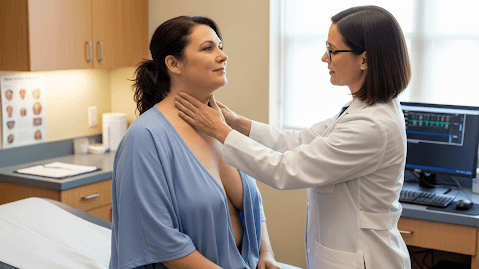
Understanding the Changes in Your Skin During Menopause
Menopause is a significant milestone in every woman’s life. Yet, with it comes a host of skin changes that can leave many feeling bewildered. As estrogen levels dip, women experience various skin conditions ranging from increased dryness to stubborn acne, seemingly contradicting what one might expect. But understanding this journey is the first step in reclaiming one’s skin health.
Why Is My Skin So Different?
For many, the onset of menopause can bring about a confusing new reality. Dermatologists have noted that hormonal fluctuations during perimenopause, leading into menopause, can result in issues like dryness, sensitivity, and acne. Ellen Marmur, MD, explains that decreasing estrogen levels lee to a skin that feels less hydrated. "It’s like turning the moisture tap off completely," she notes. Women like Melissa Mattola-Kiatos exemplify this transition—their skin was once oily but transformed into a dry terrain, often replete with unexpected breakouts.
What Happens to Our Skin Post-Menopause?
Once a woman officially enters menopause—defined as having 12 consecutive months without a period—more significant skin aging signs tend to emerge. Research indicates that collagen levels, which are pivotal for skin elasticity and youthfulness, can decline by as much as 30% within the first five years after menopause. This loss can further aggravate issues such as further wrinkles and sagging skin.
Common Skin Concerns: Exploring the Symptoms
Many women report various skin symptoms during menopause, including:
Extreme Dryness: The lack of estrogen means less hyaluronic acid and moisture retention in the skin.
Increased Sensitivity: Many women find their skin suddenly reacts negatively to products they previously used without issue.
New Acne Types: Hormonal acne can manifest as cystic lesions deep in the skin, independent of oil production.
Dr. Mona Gohara highlights the irony wherein dryness might usually reduce acne, but hormonal changes induce a different type of acne that is not oil-driven but rather hormonal-driven.
How to Care for Your Skin During Menopause
Finding effective skincare solutions during this transitional phase is crucial. Here are some strategies that might help:
Hydration is Key: Incorporating richer moisturizers that lock in hydration can counteract dryness. Look for products featuring hyaluronic acid and ceramides.
Gentle Cleansing: Opt for gentle cleansers that do not strip the skin of its natural oils and moisture.
Consider Retinoids: These products can stimulate collagen production and help manage signs of aging.
Routine Dermatological Consultations: Regular visits can help assess skin conditions and tailor products to fit evolving skin needs.
The Emotional Landscape of Changing Skin
Many women often face emotional distress as they navigate these skin changes. The societal pressures surrounding beauty can compound feelings of inadequacy when skin does not meet expectations. Relating with others undergoing similar changes can be empowering. Support groups and community discussions can be essential in sharing experiences and coping strategies.
Holistic Approaches: Lifestyle Adjustments
Beyond topical treatments, lifestyle changes play a significant role in skin health during menopause:
Exercise Regularly: Engage in routines that boost circulation and support overall body health, which can reflect positively on your skin.
Balanced Diet: Incorporate nutrient-rich foods—antioxidants found in fruits and vegetables can play a crucial role in combating skin oxidative stress.
Stay Hydrated: Drinking plenty of water keeps skin cells plump and hydrated.
These lifestyle choices contribute not just to skin health, but to overall well-being during menopause.
Concluding Thoughts
Menopause can represent a challenging yet transformative stage of life. By understanding the changes occurring within, women can craft effective skincare routines that not only nurture their skin but also support emotional stability. Join the conversation, share your experiences, and embrace this new chapter with confidence.
Stay informed about your skin's health by researching more on these topics and connecting with professionals who can guide you. Remember, you are not alone on this journey.
 Add Row
Add Row  Add
Add 




Write A Comment